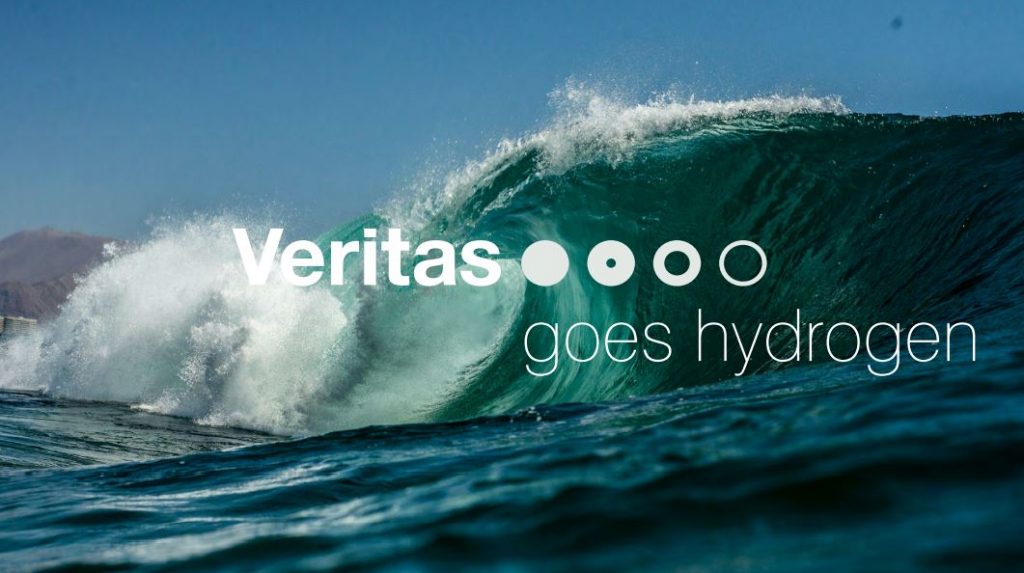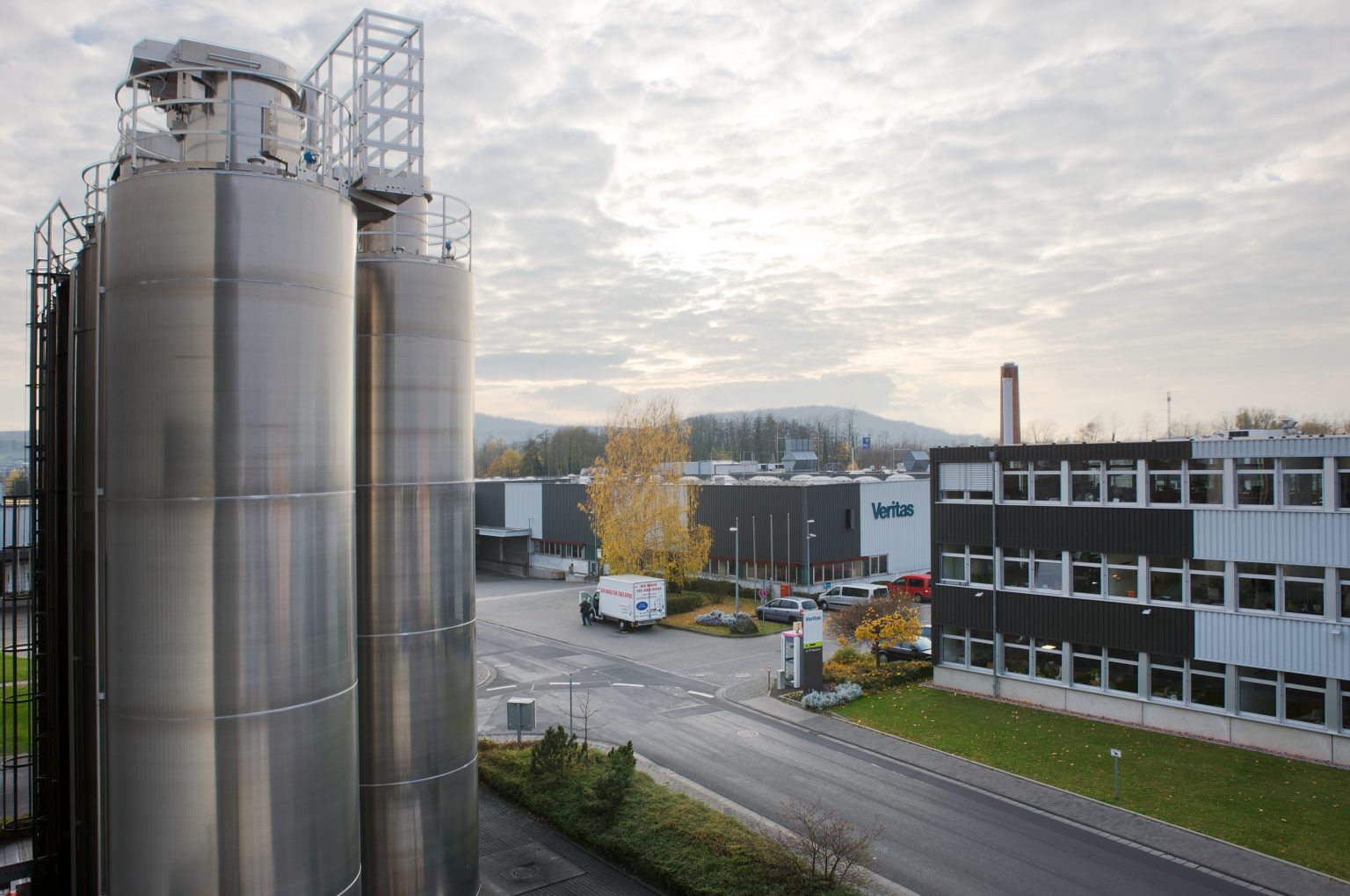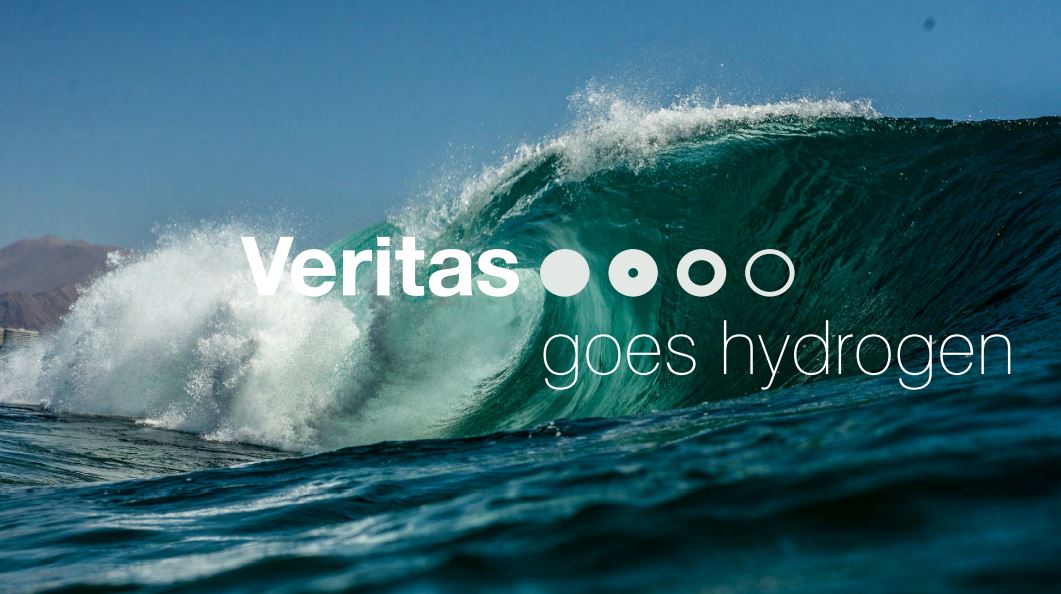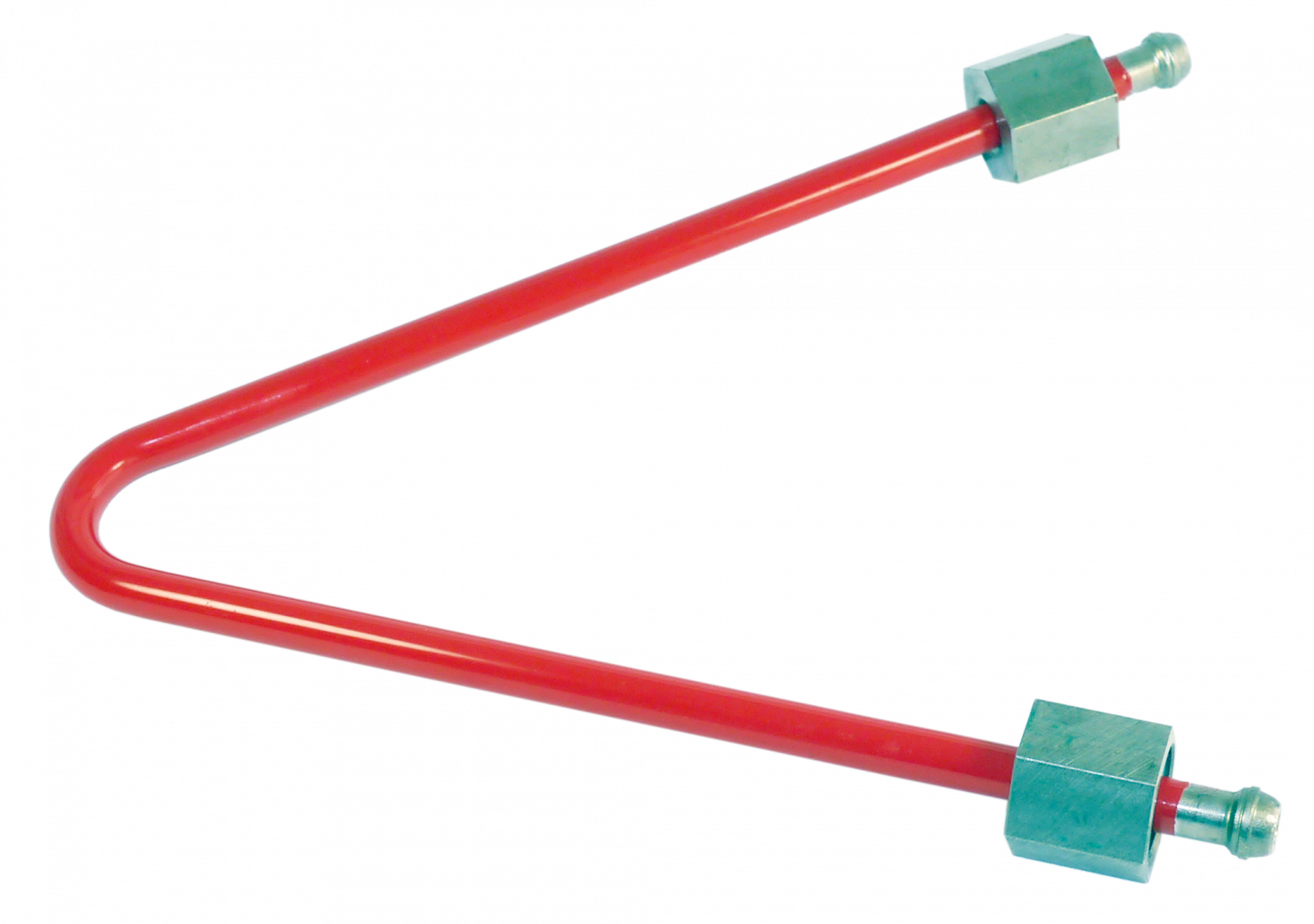— Kombination aus qualitativen und quantitativen Analysemethoden — Wichtige Basis für Entwicklung verbraucherorientierter Geschmackslösungen
— Natürliche, gesunde und klimafreundliche Produkte bei Verbrauchern besonders gefragt Die Original-Meldung zu diesem Chemie Unternehmen finden Sie unter https://www.symrise.com/de/newsroom/artikel/symrise-identifiziert-mit-metastudie-trendscopeTM-aktuelle-verbrauchertrends-bei-lebensmitteln-und-ge/
Hannover Messe 2022: Veritas präsentiert Produkte für New Mobility
Der Beitrag Hannover Messe 2022: Veritas präsentiert Produkte für New Mobility erschien zuerst auf Veritas AG.
Die Original-Meldung zu diesem Chemie Unternehmen finden Sie unter https://www.veritas.ag/kba-erteilt-ec-79-zulassung-fuer-wasserstoff-hochdruckleitungen-2/
Evotec and Almirall enter into a multi-target alliance in medical dermatology
Evotec SE and Almirall S.A., a global biopharmaceutical company focused on skin health, announced today a multi-target alliance in Medical Dermatology. The companies aim to discover and develop novel therapeutics for severe skin diseases, including immune-mediated inflammatory conditions such as atopic dermatitis and non-melanoma skin cancer such as basal cell carcinoma. Die Original-Meldung zu diesem Chemie Unternehmen finden Sie unter https://www.evotec.com/en/investor-relations/news/corporate-news/p/evotec-and-almirall-enter-into-a-multi-target-alliance-in-medical-dermatology-6179
Customer Story: Rescuing Low Viability Cell Products
– 5 min read
In December 2020, we ran a Holiday Season Competition and a few lucky customers won a NucleoCounter® NC-202™ for a year to support their research projects. Here, we catch up with one of the winners to find out how their project is going. We speak to PhD student Anqi Li from the Hudson Institute of Medical Research who has been developing a new process to remove non-viable cells and rescue low viability products.
The gap between R&D and commercial-scale manufacturing of cell therapies can sometimes seem like an insurmountable chasm. At the industrial scale, cell therapy manufacturing must be robust, cost-effective and reproducible to ensure a sufficient supply of high-quality products for patients. Automation plays a crucial role in achieving this, but commercial-scale automated manufacturing processes require significant planning and investment.
As a result, cell therapies that are still in clinical trials are often produced in academic settings. However, academic laboratories typically rely on time-consuming, laborious, and unreliable manual techniques in their cell therapy manufacturing processes. This makes scaling up and providing a consistent supply of therapies for patients difficult.

Bridging the Gap Between R&D and Commercial Cell Manufacturing
In 2016, David James and his team from Scinogy, a company specializing in cell therapy manufacturing scale-up, recognized the need for flexible, cost-effective, small-batch manufacturing solutions that fill the gap between R&D and commercial manufacturing of advanced therapy medicinal products (ATMPs). They began developing a multi-purpose automated device for cell separation, concentration, washing, buffer exchange, and cryopreservation. Scinogy designed the device to eliminate some of the most complex and laborious manual processes in cell therapy production, therefore easing the transition from R&D to clinical manufacturing.1,2
Scinogy developed the first prototypes of their device using beads to represent cells. But they soon realized that they needed to test it on real cells to optimize the process conditions to ensure maximum efficiency while avoiding cell damage or loss. They formed a collaboration with Associate Professor Rebecca Lim from Hudson Institute and recruited Anqi Li as a PhD student to optimize the device for use on real cells in collaboration with Thermo Fisher Scientific. Anqi has spent the last few years developing the cell washing device, which has now been successfully launched through Thermo Fisher Scientific and named the Gibco™ CTS™ Rotea™ Counterflow Centrifugation System.
Cell Counting Was Critical in Developing the Gibco™ CTS™ Rotea™
In cell therapy manufacturing, especially autologous therapies, every cell is precious. As a result, ensuring the Gibco™ CTS™ Rotea™ provided gentle processing and high live cell recovery was critically important. Anqi investigated the effects of factors including flow rate, centrifugal force, and buffer density on cell number and viability.3,4
“When we were developing the device, cell count was critical to informing us of failure or success for every run,” says Anqi. Cell counting helped the team understand how the varying process parameters affected their cells, so that they could optimize the Gibco™ CTS™ Rotea™. But soon, manual cell counting became a bottleneck, slowing down the development process. “We were frustrated with manual counting every time,” says Anqi. “We did try other automated cell counters, but their utility came with big limitations.”
The team soon heard about the NucleoCounter® NC-202™, our automated cell counter that gives precise results in less than a minute. They didn’t hesitate to enter our competition, hoping that the NC-202™ would give them a reliable way to count their cells and improve their process development. They won and the NC-202™ was installed in the Hudson Institute laboratory in February 2021.

Rescuing Low Viability Cell Products
The Gibco™ CTS™ Rotea™ Counterflow Centrifugation System was launched in October 2020. But the team has continued improving the system and working on ways to enhance small-scale cell therapy manufacturing.
Since winning the NC-202™, they have been working on a process to improve cell viability in ATMPs. “Cell viability is an important release criterion for cell manufacturing. If you have a batch of cells with low viability, you can’t infuse it into a patient even if you’ve achieved the target yield after expansion or collection. The batch has essentially failed,” Anqi explains.
The team hoped to make a fast and inexpensive way to rescue these low viability products. “We developed a process that uses an additional step with the Gibco™ CTS™ Rotea™ system to remove the dead cells and improve the viability of the product,” she says.
In this study, they used the NC-202™ to measure the count and viability of their cells before and after the rescue process. “Using the NC-202™ has proven to be a good approach. Using the traditional cell counting method, we could not differentiate between the magnetic beads that we use to activate the cells and the T cells themselves,” says Anqi. The NC-202™ uses fluorescent dyes that bind to nucleic acids to detect cells, easily differentiating between cells and magnetic beads.
Their latest work was published in Cytotherapy in March this year, less than a year after the NC-202™ was installed. In the published work, they demonstrate the optimized rescue process. They report successfully improving the viability of expanded T cells from 80.7 to 94.7% and freshly isolated human amniotic epithelial cells from 79.2 to 90.3%.5 These are remarkable results in an industry where every cell counts.
“A reliable automated cell counter like the NC-202™ certainly made the process development a lot easier,” says Anqi.
Click here to learn more about the NucleoCounter® NC-202™.
Further Reading
Blog post: All Your Cell Counting Questions, Answered
More about the Gibso™ CTS™ Rotea™: Gibco CTS Rotea Counterflow Centrifugation System
Mini review: Cell Counting in GMP Environments
Product: NucleoCounter® NC-202™
References
- Li, A., James, D., Lim, R. (2021), The Gibco™ CTS™ Rotea™ system story—a case study of industry-academia collaboration Gene Therapy.
- Li, A., et al. (2021) Advances in automated cell washing and concentration Cytotherapy 23(9):774-786.
- Li A., et al. (2020) Design of Experiment (DoE) approach to identify critical parameters in a counterflow centrifugation system Cytotherapy 22(5):S151-S152.
- Li A., et al. (2019) Evaluating automated buffer exchange protocols using Rotea™ counterflow centrifuge Cytotherapy 21(5):S40.
- Li A., et al. (2022) Improving cell viability using counterflow centrifugal elutriation Cytotherapy.
Gibco™ CTS™ and Rotea™ are trademarks of Thermo Fisher Scientific.
Die Original-Meldung zu diesem Chemie Unternehmen finden Sie unter https://chemometec.com/rescuing-low-viability-cell-products/
Symrise Cosmetic Ingredients startet Innovationsplattform „Beauty Activations“ für Kosmetikmarken
— Initiative für strategische Partnerschaften mit Kosmetikmarken in Nordamerika
— Starker Fokus auf Stärkung und Aufwertung der Produktinnovation von Marken Die Original-Meldung zu diesem Chemie Unternehmen finden Sie unter https://www.symrise.com/de/newsroom/artikel/symrise-cosmetic-ingredients-startet-innovationsplattform-beauty-activations-fuer-kosmetikmarken/
Evotec and Sernova announce exclusive strategic partnership for iPSC-based beta cell replacement therapy to advance a 'functional cure' for diabetes
Evotec SE and Sernova Corp., a clinical-stage company and leader in regenerative medicine cell therapeutics today announced a partnership in the field of diabetes. Both Companies will leverage their respective strengths to develop an implantable iPSC-based beta cell replacement therapy for the treatment of insulin-dependent diabetes, including type 1 and 2. Die Original-Meldung zu diesem Chemie Unternehmen finden Sie unter https://www.evotec.com/en/investor-relations/news/corporate-news/p/evotec-and-sernova-announce-exclusive-strategic-partnership-for-ipsc-based-beta-cell-replacement-therapy-to-advance-a-functional-cure-for-diabetes-6177
Evotec SE reports results for the first quarter 2022 and provides corporate update
Evotec SE today announced the financial results and corporate updates for the first quarter 2022: Strong performance leads to significant revenue growth; strong momentum in all business areas; new partnerships based on data-driven precision medicine platforms; guidance for full-year 2022 confirmed Die Original-Meldung zu diesem Chemie Unternehmen finden Sie unter https://www.evotec.com/en/investor-relations/news/corporate-news/p/evotec-se-reports-results-for-the-first-quarter-2022-and-provides-corporate-update-6175
Symrise präsentiert mit Neo Heliopan® ZnO mineralbasierte Sonnenschutzfilter – wirksam und sicher!
— Sicherer Breitband-UVA- und -UVB-Schutz
— Eignet sich für breit gefächerte Produktpalette, einschließlich Sonnenschutzprodukte für Kinder, Sport und empfindliche Haut
— Einfach anzuwendende UV-Filter mit reduziertem „Weißeffekt“ und ausgezeichnetem Hautgefühl Die Original-Meldung zu diesem Chemie Unternehmen finden Sie unter https://www.symrise.com/de/newsroom/artikel/symrise-praesentiert-mit-neo-heliopanR-zno-mineralbasierte-sonnenschutzfilter-wirksam-und-sicher/
Evotec and Bristol Myers Squibb extend and expand strategic partnership in protein degradation
Evotec SE announced today that the Company has extended and expanded its partnership with Bristol Myers Squibb in targeted protein degradation, originally signed in 2018. The initial collaboration has proven to be highly productive in generating a promising pipeline of molecular glue degraders. Based on this success, Bristol Myers Squibb and Evotec extend and expand this partnership for an additional 8 years with the goal to further broaden and deepen the strategic alliance. Die Original-Meldung zu diesem Chemie Unternehmen finden Sie unter https://www.evotec.com/en/investor-relations/news/corporate-news/p/evotec-and-bristol-myers-squibb-extend-and-expand-strategic-partnership-in-protein-degradation-6173
Ad hoc: Evotec and Bristol Myers Squibb extend and expand strategic partnership
Evotec SE announces today that the Company has extended and expanded its partnership with Bristol Myers Squibb (NYSE:BMY) in targeted protein degradation, originally signed in 2018. Die Original-Meldung zu diesem Chemie Unternehmen finden Sie unter https://www.evotec.com/en/investor-relations/news/ad-hoc-releases/p/ad-hoc-evotec-and-bristol-myers-squibb-extend-and-expand-strategic-partnership-6171



